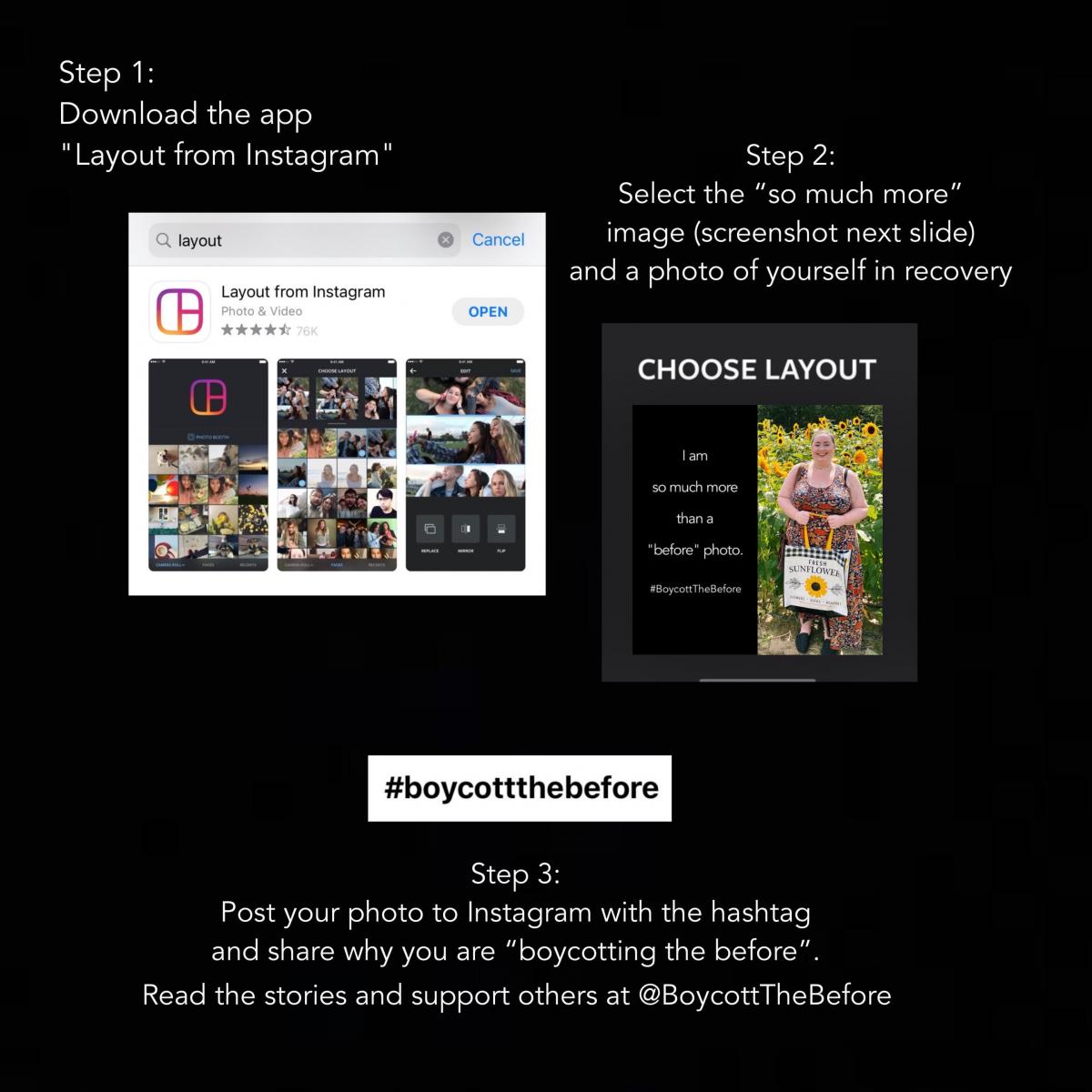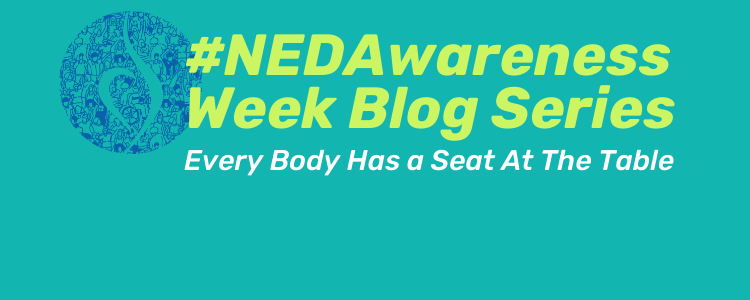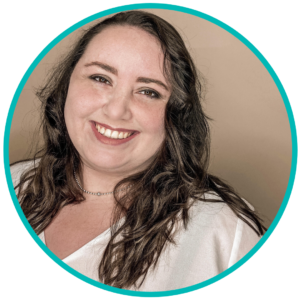#BoycottTheBefore: Sharing Our Recovery Stories Responsibly
As not every eating disorder recovery story is discussed in the media and not every eating disorder sufferer feels valid in their struggles, it is imperative for us to work towards building a most inclusive community. What this means is that we uplift every body — not just some — and work towards creating spaces that are welcome to all.
If we see just anorexia or bulimia being discussed in terms of eating disorder awareness, we are allowed to step in and advocate for all people in recovery, as all struggles matter and deserve the same critical awareness. There are more people struggling with binge eating disorder — approximately three times the amount than those struggling with anorexia and bulimia combined, yet we don’t hear as many people talking about it. This could happen because there is still so much shame around binge-eating. It could also be because we don’t amplify enough voices in the media and community who do struggle with it.
It’s time to start passing the mic to the people we never hear from. We must also work on not attaching shame to binge-eating and begin showing it the same understanding we do to a behavior like restricting. Our culture is the first to send love and support to a person struggling with restricting, while simultaneously shaming and blaming a person struggling with binge-eating behaviors. The negative connotations surrounding binge-eating keep people from openly talking about it. All eating disorder behaviors deserve to be met with support and understanding.
The media also infrequently reports on stories besides anorexia recovery because they can share the “before” photo of the individual underweight and drive clicks and views to their website, or numbers and ratings to their show. I founded the campaign #BoycottTheBefore to be an option for those who choose not to share their “before” photos, and just as importantly for those in recovery who do not have a “before” photo.
“Before” photos can inadvertently claim that anorexia is the only serious and real eating disorder. Many people in recovery do not have “before” photos. Many people in recovery may feel uncomfortable or triggered looking at “before” photos, let alone sharing them with the public. People may share their “before” photos to prove they were “sick enough” to themselves and others, which becomes a slippery slope when we want to spread awareness because you cannot always see someone struggling with an eating disorder. Not to mention, losing weight is not always an effect of having an eating disorder.
When we make sharing “before” photos, which is just one aspect of only some people’s struggle, a popular trend, we leave out people who disagree with sharing them and we leave out people who do not have “before” photos. It is damaging to showcase only one eating disorder effect while leaving out the rest, especially when the “before” photos can be triggering, be misused as thinspiration, spread misconceptions, and sensationalize the mental illness. Sharing triggering details like how much was eaten in a day or graphic details of what eating disorder behaviors were used in our posts can become instructions for others to follow. This could lead people to developing an eating disorder themselves. It is best to leave out those details and to focus on the struggle in more general, less triggering terms.
 Anyone in recovery can participate in the #BoycottTheBefore campaign on social media by sharing the black and white “I am so much more than a “before” photo” image next to an image of them in recovery. The stories are shared on Instagram on @boycottthebefore.
Anyone in recovery can participate in the #BoycottTheBefore campaign on social media by sharing the black and white “I am so much more than a “before” photo” image next to an image of them in recovery. The stories are shared on Instagram on @boycottthebefore.
#BoycottTheBefore stands as a mindful choice to discourage comparisons among each other and encourage thoughtful discussion on what recovery really is. It comes down to how we can effectively educate the world on what eating disorders are without sensationalizing the illness.
People who are struggling in silence with eating disorders may not seek help if they only see underweight bodies being showcased in recovery stories. These people may not even realize they have a problem if “before” photos flood the media and social media for eating disorder awareness because they could assume their illness is not as severe because they are larger; they may think they do not need help. Someone can be struggling with an eating disorder at any size or weight. Someone can be struggling at a lower weight or a higher weight. All bodies deserve the same help and support.
Enabling the sharing of “before” photos and other unnecessary details like how many calories were or weren’t consumed or how many pounds were lost in the struggle paints a very clear picture: we don’t care about eating disorder sufferers unless the illness is “severe.” Presumed severity of an eating disorder should never equate to more empathy, awareness, or understanding. Reserving empathy, awareness, and understanding only for those society often deems “looks the part” of an eating disorder sufferer undermines true awareness and overlooks every single person who has an eating disorder and was never underweight.
With eating disorder recovery before-and-after photo sets, it can be damaging to those struggling and in recovery to not be able to relate to being as small as the person in a “before” photo. They can feel invalidated in their struggles and like theirs were not as serious or real. Comparisons are common in those with eating disorders, especially because of the culture that celebrates thinness and demonizes fatness. Comparisons can also happen because the illness can be competitive in nature — always trying to be the “sickest” or always trying to be the thinnest for some sufferers. We can feel as if we failed our illness if we did not appear as “sick” as others in their “before” photos, which is simply not true.
In my eating disorder struggles, something that stuck with me for years of being in and out of treatment was that I didn’t feel I deserved to feel better. I didn’t feel as though I was sick enough compared to others, which fed my illness and kept me sicker for longer. I have learned that “sick enough” is an illusion; if you are worried you are not “sick enough”, you are, in fact, sick enough because it is a disordered thought wrapped up in misconceptions. Struggle is struggle is struggle is struggle. Pain is pain is pain is pain. All struggle and pain is relative in terms of eating disorders no matter one’s size or weight. All eating disorder sufferers deserve help. Eating disorders are mental illnesses first.
In terms of the media picking and choosing the triggering “before” photos and shocking numbers of those usually in recovery from anorexia, we can choose to reach out to the media outlets that engage in this and educate them on why this can be so harmful. We can decline sharing our photos and triggering details if a media outlet asks for those in order to be featured. We can choose to unfollow sites on social media and unsubscribe from their emails if they are posting triggering content in the guise of eating disorder awareness.
Passing the mic and uplifting marginalized voices like BIPOC, people in the LGBTQ+ community, people with disabilities, people of higher weights and those with eating disorders that are hardly covered in the media can look like engaging with their posts on social media and sharing them. It matters that these people especially are seen. The media does not usually cover those less “popular”, but equally valid and important stories, so it is in our hands to try to spread them as much as we can.
All eating disorder struggles are real and deserving of support. We all deserve to be seen, heard and validated. Making sure everyone has a seat at the table is important. The next step is to have the marginalized people and voices seldom heard be at the head of the table. All bodies and all eating disorder struggles were not created equal, but we can work towards a world where one day they are.
Lexie Manion is a writer, artist, student and mental health advocate. She often writes about mental health and body acceptance topics, and shares her personal recoveries from mental illness. Lexie is working towards becoming an art therapist, as she has a deep love for creating art that reflects different emotions and experiences. Lexie strongly believes art and writing can be cathartic. She shares the messages that we are enough as we are and worthy of help. You can find more of her work at lexiemanion.com or follow her on Instagram at the handle @lexiemanion.





